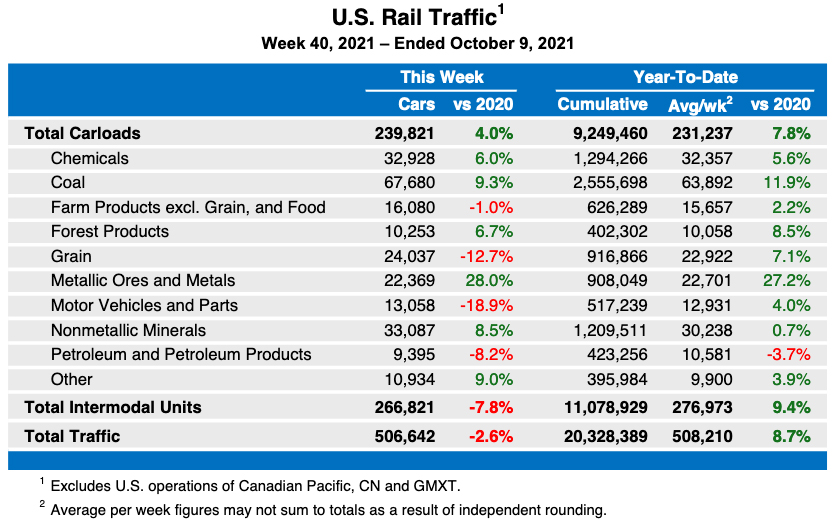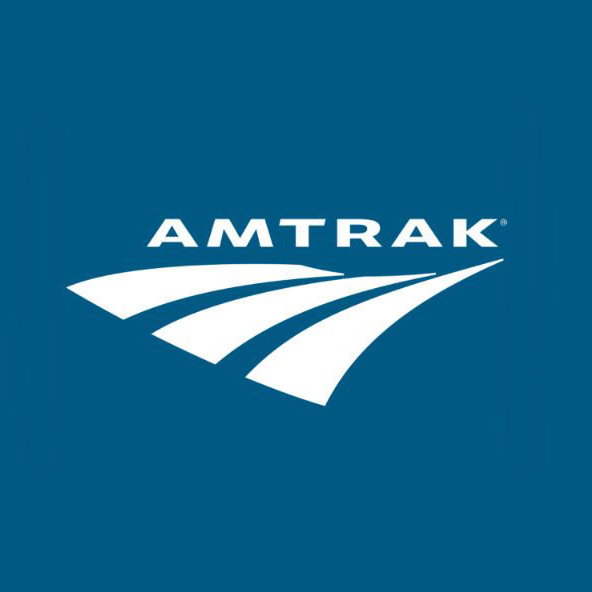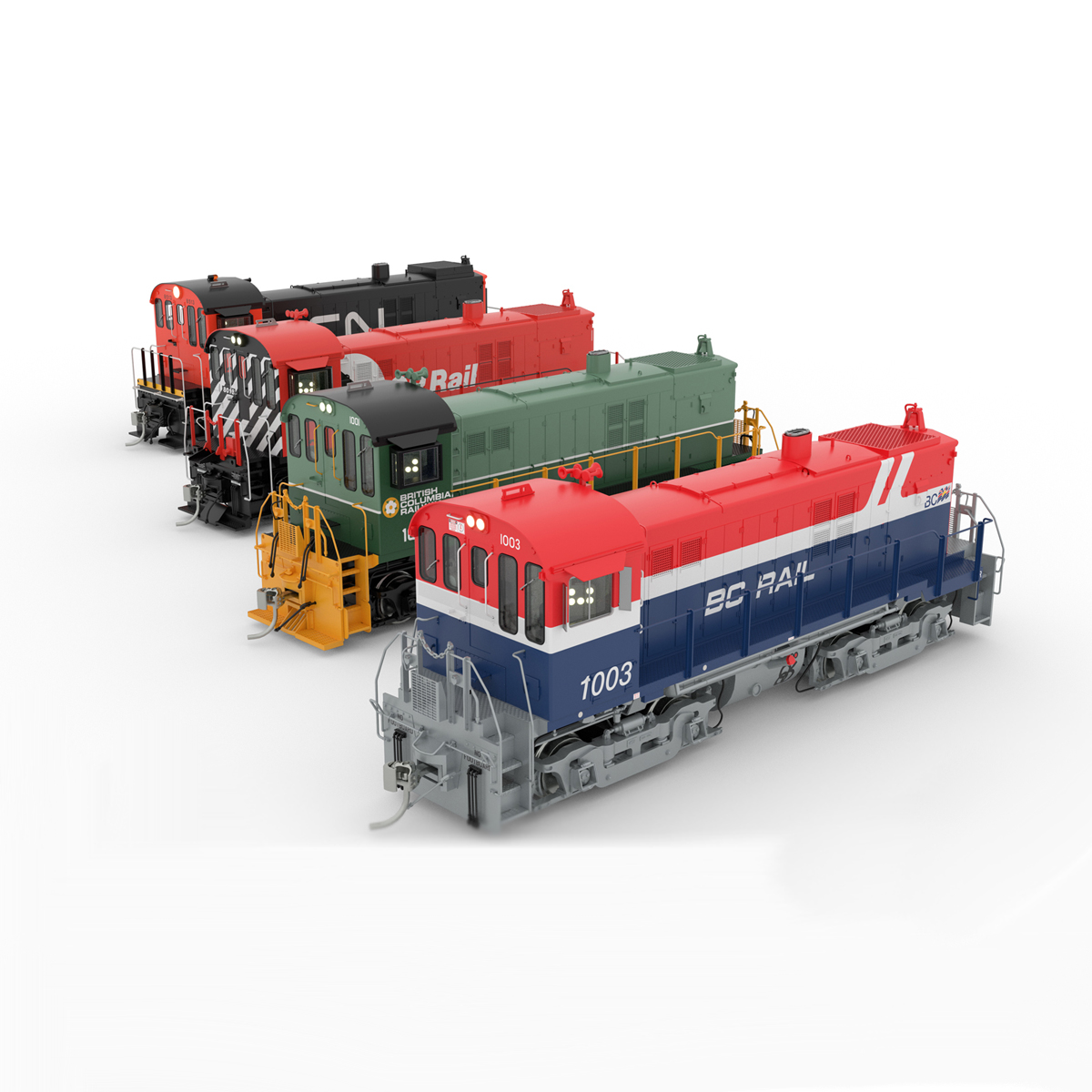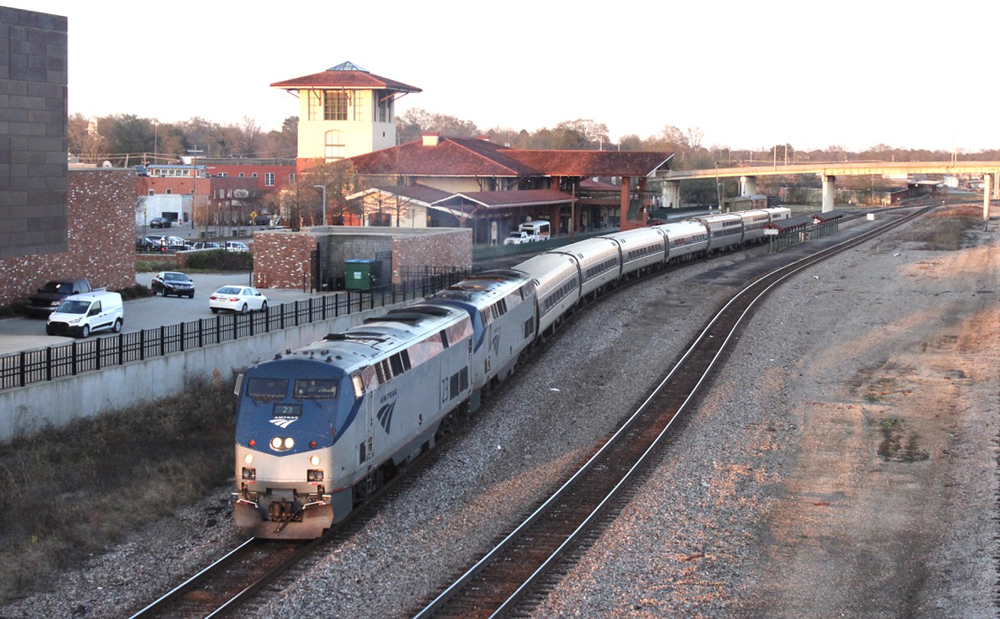
WASHINGTON — Intermodal issues reflecting broad supply-chain problems continue to drag down U.S. freight rail volume, according to the latest statistics from the Association of American Railroads.
Figures for the week ending Oct. 9 found overall traffic down 2.6% against the same week in 2020. The total volume of 506,642 carloads and intermodal units included 239,821 carloads, an increase of 45, and 266,821 trailers and containers, a 7.% decline from the corresponding week a year earlier.
Year-to-date figures, through 40 weeks, remain ahead of 2020, with carloads up 7.8%, intermodal units up 9.4$, and overall traffic up 8.7%, with an average weekly total volume of 508,210 carloads and intermodal units.
North American totals for the week — for the 12 reporting U.S., Canadian, and Mexican railroads — include 335,353 carloads, up 1.2% over the same week in 2020; 355,991 intermodal units, down 7.8%, and total traffic of 691,344 carloads and intermodal units, down 3.6%.














Inability to clear TEU boxes at rail destinations is a serious part of the problem. If customers don’t pick up boxes within a reasonable time after arrival at a rail destination, congestion occurs. Lack of rail carrier pesonnel and equipment at destinations doesn’t help. This is the unwanted step-child of PSR. Re-opening idled facilities will help but not in as timely a way as is needed. Experts are estimating, given current transload and transit rates, that congestion will last un til the new year arrives-maybe. The ATA estimates delays at rail to road transload facilities cost the motor carriers $75 billion in lost time yearly. How’s that for customer friendly. More to the point, why should it be tolerated? Who wants to do business with an entity that is heedless of avoidable customer costs. ..
I can give you one major cause that the mainstream media refuse to report on: the more than 100 container ships anchored OFFSHORE at LA-Long Beach waiting for a dock opening so they can unload their 15,000 or so containers per ship.
Another reason is the requirement to bring an empty in to the yard to exchange for a loaded container. If the rules get any dumber, we might get our toys by NEXT Christmas.